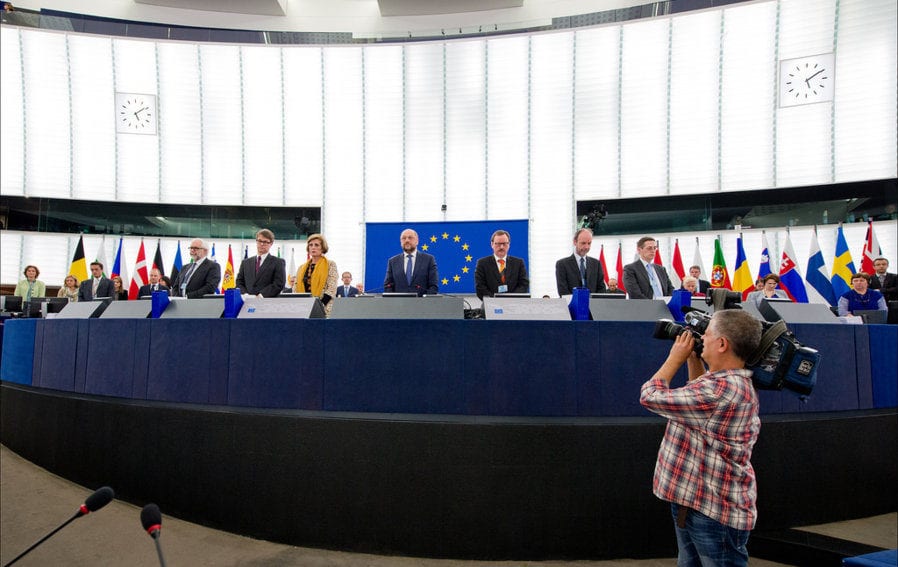Send to a friend
The details you provide on this page will not be used to send unsolicited email, and will not be sold to a 3rd party. See privacy policy.
[CAPE TOWN] The European Council has approved a 683 million euro (US$947 million) budget proposal for the second phase of the European and Developing Countries Clinical Trials Partnership (EDCTP2) to boost medical research in Sub-Saharan Africa.
The new budget passed by the council of the European Commission today (May 6) triples that of the first phase (2003-2015) which was US$278 million. The new funding is part of Horizon 2020, the EU Framework Programme for Research and Innovation 2014-2020.
The European Parliament approved the proposed budget with overwhelming majority of 646 out of 671 votes last month (15 April) and was awaiting the council’s vote.
“The larger budget demonstrates a widely shared confidence that the second EDCTP programme will deliver on its promise.”
Charles Mgone, The European and Developing Countries Clinical Trials Partnership (EDCTP)
The EDCTP works to establish and strengthen research capacity in 48 countries in Sub-Saharan Africa to accelerate clinical trials to produce new drugs for combating HIV/AIDS, malaria and tuberculosis in Sub-Saharan African.
Charles Mgone, EDCTP executive director, says more funding will translate into more support for a larger number of projects and clinical trials.
“This action reflects the importance that the European Union attaches to its partnership with Africa and to the fight against poverty-related diseases as well as recognition of the very tangible results of the first EDCTP programme as an instrument for achieving these aims,” he says.
Mgone adds: “The larger budget demonstrates a widely shared confidence that the second EDCTP programme will deliver on its promise”.
He tells SciDev.Net that provision of facilities for study sites and research centres will take place on a larger scale, accommodating a bigger number of African researchers.
Renate Baehr, executive director of Germany-headquartered Deutsche Stiftung Weltbevoelkerung, an international development organisation, says that the EDCTP2 can build on the success in raising awareness on the value of research and development for global health in Sub-Saharan Africa of the first phase.
“It sends out an important signal ahead of the negotiations on the post-2015 development agenda that in order to tackle the still crippling effects of poverty-related and neglected diseases, investment in research and development, and innovation for global health is crucial,” Baehr tells SciDev.Net.
According to Mgone EDCTP2 will expand to include all phases of clinical trials as well as implementation research for HIV/AIDS, tuberculosis, malaria, neglected infectious diseases, and possibly diarrhoeal and respiratory infections.
“The [funded] research will cover areas such as implementation research which provides evidence to optimize the usage of evidence to support provision of improved health services,” says Modest Mulenga, director, Tropical Diseases Research Centre, Ndola, Zambia. “This is a unique aspect of EDCTP2.”
Gibson Kibiki, director, Kilimanjaro Clinical Research Institute in Tanzania, says after building capacity, which allows his outfit to function properly, the second phase will be geared more towards strengthening the systems and structures.
“We will use the available resources for training, and to decrease dependency on our northern partners in processing research specimens,” Kibiki tells SciDev.Net.
This article has been produced by SciDev.Net's Sub-Saharan Africa desk.














